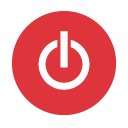How Regina Ye Started A CPG Company While In College
Hello! Who are you and what business did you start?
My name is Regina Ye, and I am the founder of ZIRUI.
Our flagship product is a modular magnetic travel toiletry case that is secure, sleek, and simple. ZIRUI is the best way to travel with liquids.

What's your backstory and how did you come up with the idea?
I am a big traveler and a beauty fanatic!
Being an international student, I traveled back and forth a lot between countries and continents. When I came up with the idea of ZIRUI I was 18 and had already traveled to more than 20 countries, so I was very familiar with the pain of traveling and having to pack my things nicely.
I was just getting very fed up with the standard startup rhetoric, and being in the ecosystem, I saw there was a lot of ego in the game. Some...
Sorry, you need to login and/or become a member to view the rest of this content.More Business Ideas Like This














